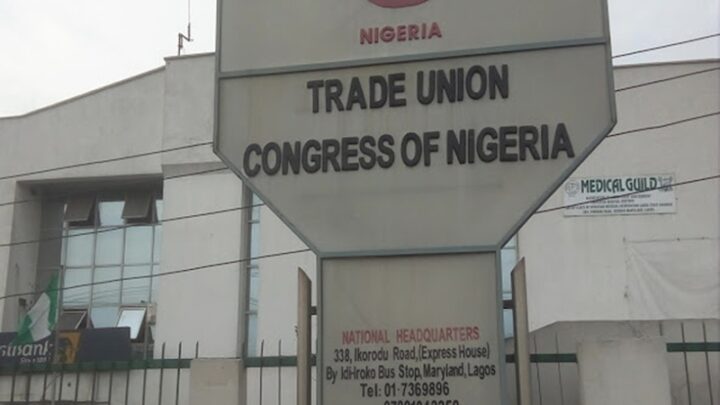The Trade Union Congress of Nigeria (TUC) has issued a strong warning to the Federal Government, threatening a nationwide strike if the proposed 5 percent tax on petroleum products is implemented. The labour body insists that the plan is ill-timed, insensitive to the current economic hardships, and capable of worsening the cost-of-living crisis already faced by millions of Nigerians.
According to the TUC, the introduction of such a tax would inevitably lead to higher pump prices for petrol and diesel, compounding the financial strain on households and businesses. The union noted that Nigerians are still grappling with the impact of fuel subsidy removal, inflationary pressures, and rising utility costs. Adding an additional levy, it argued, would push the economy further into difficulty and provoke widespread public anger.

The Federal Government has justified the proposed levy as part of broader fiscal reforms aimed at boosting non-oil revenue and reducing dependence on borrowing. Officials argue that the measure is designed to strengthen government finances, support infrastructure projects, and create a more sustainable revenue base. They maintain that Nigeria cannot continue to rely heavily on crude oil earnings and must expand its tax net to stabilise public finances.
But the TUC strongly rejects this reasoning, saying that shifting the burden onto citizens at such a critical time is unacceptable. In a statement issued after an emergency meeting of its National Executive Council, the union said the tax plan undermines social justice and exposes government’s disconnect from the realities facing ordinary Nigerians. It argued that the policy will not only worsen inflation but also erode the competitiveness of small and medium-sized businesses that rely on petroleum products for their operations.
Labour leaders also questioned the government’s priorities, pointing out that mismanagement, corruption, and wasteful spending continue to weaken public finances. They insisted that before introducing new taxes, the government must cut unnecessary expenditures, recover looted funds, and strengthen accountability in the management of public resources. They accused policymakers of repeatedly asking citizens to sacrifice while political leaders fail to demonstrate the same discipline.
The TUC leadership therefore resolved that if the government moves ahead with the levy, the union will mobilise its members nationwide for a total shutdown of economic activities. It stressed that the strike will not be symbolic but comprehensive, involving workers in critical sectors including oil and gas, transportation, and finance. The union noted that previous industrial actions have forced government to reconsider unpopular policies, and warned that the same could happen if the proposed tax is not withdrawn.
The threat has sparked widespread reactions, with analysts and civil society groups weighing in on the possible consequences. Economic experts caution that while Nigeria indeed needs to raise more non-oil revenue, taxation policies must be carefully designed to avoid stifling growth. They argue that an additional levy on petroleum products, which already account for a significant portion of consumer expenditure, could trigger a chain reaction of price increases across the economy.
Transport operators, for instance, have warned that any increase in fuel costs will immediately translate into higher fares, thereby worsening the burden on commuters. Businesses that depend on diesel-powered generators to run daily operations also say they would be forced to raise the prices of goods and services. This, in turn, could accelerate inflation, which has remained stubbornly high in recent months.
On the other hand, government officials insist that the country cannot afford to ignore new revenue sources, given the scale of infrastructural and social needs. They argue that the petroleum levy, if properly implemented, will provide funding for critical projects that can improve living standards in the long term. Some officials have also suggested that the government may consider phasing in the tax gradually to reduce the shock on consumers.
Still, labour unions remain unconvinced. The TUC maintains that Nigerian workers and citizens have carried enough burden from recent economic reforms and should not be made to pay more. It called on the government to suspend the proposal and engage in genuine dialogue with stakeholders before taking any further steps. According to the union, meaningful consultation and transparency are necessary to restore trust and prevent another cycle of confrontation between labour and government.
Observers note that the standoff is emerging at a time when industrial relations in the country are already strained, with multiple unions expressing dissatisfaction over unmet demands and poor working conditions. The Nigerian Labour Congress (NLC), which has often aligned with the TUC on major issues, has not yet announced its position on the petroleum levy, but many expect both unions could join forces if the government fails to reconsider.
As the debate continues, Nigerians wait anxiously to see how the matter will unfold. For ordinary citizens, the central concern remains the cost of living, which has surged dramatically in the past year. Whether government and labour can reach a compromise will determine not only the stability of the energy sector but also the resilience of the economy in the months ahead.
The ball is now in the government’s court. If it proceeds without adjustments, the TUC’s threat of a nationwide strike could soon materialise, disrupting economic activities and potentially paralyzing key sectors. For many Nigerians, however, the hope is that both sides will find a way to balance fiscal sustainability with social protection, ensuring that ordinary people are not pushed further into hardship by another round of policy shocks.
Support InfoStride News' Credible Journalism: Only credible journalism can guarantee a fair, accountable and transparent society, including democracy and government. It involves a lot of efforts and money. We need your support. Click here to Donate
